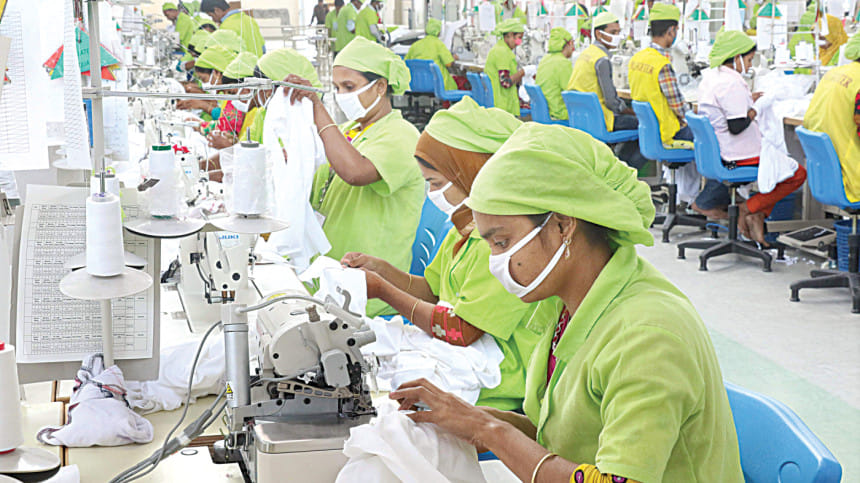98% of RMG workers shun universal pension: study

Some 98.7 percent of garment workers did not participate in a state-sponsored universal pension scheme (UPS) due to a lack of financial capacity and awareness, according to a study.
Another reason was that workers were not familiar with the process of digitally applying for the UPS, it said.
The study is based on a survey conducted on 200 garment workers in the capital's Jatrabari, Demra, Motijheel, Sutrapur, Lalbagh, Gulshan, Badda, Sabujbagh, Mirpur, Pallabi, and Mohammadpur areas.
The Netherlands-based Mondiaal FNV conducted the study on "Universal pension scheme: exploration of potential scopes for RMG workers' social protection in Bangladesh."
Md Manirul Islam, deputy director (Research) of the Bangladesh Institute of Labour Studies, shared the findings of the study at a discussion at Shrom Bhaban in Dhaka yesterday.
Another major reason was that the premium for the Progoti scheme of the UPS, applicable to employers and employees of private companies, was "high."
Moreover, although there was no way to safeguard incomes, premium payments had to be continued for 10 consecutive years, the study said.
Additionally, there is no loan or withdrawal facility in the Surakkha scheme, which is meant for informal sector employers and employees.
There is also no scope for changing jobs, whereas records show that only 8 percent of workers continue working in the same factories.
The study also found that 64.7 percent of garment workers do not have the capacity to pay the monthly premium, and 75.3 percent are not aware of the UPS.
Some 61.3 percent of workers are not interested in participating in the UPS as they believe their jobs are not secure, the study also said.
Other reasons for non-participation in the UPS include job losses, factory lay-offs, industrial injuries, deaths, occupational illnesses, fires, and boiler explosions.
Poor social protection arrangements—such as the absence of pensions and provident funds, lump-sum gratuity benefits, and negligible education allowances—are also among the reasons for non-participation in the UPS.
Although the Bangladesh Labour Welfare Foundation established a central fund for the welfare of workers, the process of availing the fund is complex, the study said.
Some of the study's major recommendations include lowering the premium amount, such as that of the Surakkha scheme, making institutional participation mandatory, and ensuring employer contributions, all of which were suggested by almost every stakeholder.
Around 30 percent of respondents suggested that the government provide some form of subsidy.
Allowing withdrawals and loan facilities during income shocks, temporarily suspending contributions in times of crisis, and enabling job changes with the same pension ID were also recommended.
The study suggested that the UPS could establish the principle that RMG workers who have served the industry for a fixed term or contributed for a minimum of five years should be entitled to free medical services at government hospitals.
Educating and raising awareness among workers about the UPS and its operating system was also recommended.
A communication strategy needs to be designed and implemented to raise awareness and build trust among workers regarding the benefits, the study suggested.

 For all latest news, follow The Daily Star's Google News channel.
For all latest news, follow The Daily Star's Google News channel. 



Comments